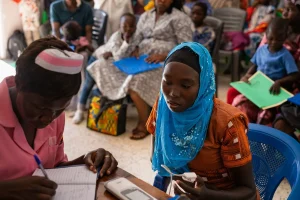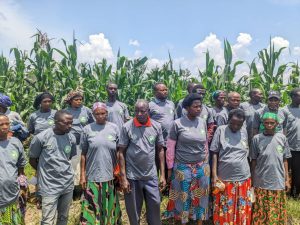One in Six Infections Now Resistant to Antibiotics, WHO Warns

One in six bacterial infections worldwide in 2023 was resistant to antibiotic treatment, the World Health Organization (WHO) has warned in a new report highlighting the growing threat of antimicrobial resistance (AMR).
According to the Global Antibiotic Resistance Surveillance Report 2025, resistance to commonly used antibiotics rose in more than 40% of monitored pathogen–antibiotic combinations between 2018 and 2023, with annual increases ranging from 5% to 15%. The data, drawn from over 100 countries through the WHO Global Antimicrobial Resistance and Use Surveillance System (GLASS), shows that essential antibiotics are becoming less effective against the bacteria responsible for common infections.
The report, covering 22 key antibiotics and eight major bacterial pathogens, reveals that resistance levels vary widely across regions. The South-East Asia and Eastern Mediterranean regions recorded the highest resistance, where one in three reported infections no longer responds to treatment. In the African Region, one in five infections was resistant.
“Antimicrobial resistance is outpacing advances in modern medicine, threatening the health of families worldwide,” said Dr. Tedros Adhanom Ghebreyesus, WHO Director-General. “We must use antibiotics responsibly and ensure everyone has access to the right medicines, quality diagnostics, and vaccines.”
The report identifies Gram-negative bacteria as the most serious threat. Escherichia coli and Klebsiella pneumoniae, which often cause bloodstream infections leading to sepsis and death, are showing alarming resistance levels. More than 40% of E. coli and 55% of K. pneumoniae globally are resistant to third-generation cephalosporins, the mainstay treatment for such infections. In parts of Africa, resistance exceeds 70%.
Other life-saving antibiotics, including carbapenems and fluoroquinolones, are also losing their effectiveness, narrowing treatment options and driving up costs, especially in low- and middle-income countries.
Despite these challenges, WHO notes progress in global surveillance. Country participation in GLASS has expanded from 25 in 2016 to 104 in 2023. However, nearly half of all countries still failed to report data last year, and many lack systems to generate reliable information, particularly those most affected by AMR.
WHO is calling on all countries to submit high-quality AMR data by 2030, in line with the 2024 UN Political Declaration on AMR, which promotes a “One Health” approach integrating human, animal, and environmental health.
“Our future depends on strengthening systems to prevent, diagnose, and treat infections and on innovating with next-generation antibiotics and rapid tests,” Dr. Tedros said.

SUBSCRIBE TO OUR NEWSLETTER



















